The expression 2::1 is interpreted in Scala as:
{ val x = 2; 1.::(x) }
because operators ending in a colon : are right-associative and if op is right-associative, then e1 op e2 is interpreted as { val x = e1; e2.op(x) } (see Scala Language Reference, Section 6.12.3, p. 84, which is p. 92 of the PDF).
For the purposes here, basically the following simplified version is called
1.::(2)
However, 1 is of type Int and Int does not have a method with name :: (and there is also no implicit conversion to another type that has such a method), hence the error.
As ayvango has pointed out above, you could use
2::1::Nil
which is interpreted as
Nil.::(2).::(1)
Now this works perfectly well, because Nil is of type List[Nothing] and does have a method ::, see scala.collection.immutable.List Furthermore, :: returns something of type List[Int], so the subsequent call .::(1) is also fine.
Another way is
2::List(1)
which becomes List(1).::(2) and works for the same reason as above.
Your confusion might be due to the fact that you consider List(2,1) to be the same as 2::1, however, it is actually 2::1::Nil. Think of lists as being built inductively as follows:
Nil is a list- if
head is an element and tail is a list, then head::tail is a list
as witnessed by the implementation of lists (simplified version, omitting traits)
sealed abstract class List[+A]
final case class ::[B](head: B, tl: List[B]) extends List[B]
object Nil extends List[Nothing]
Thus, lists always "end with" Nil in the :: form of presentation.
On a sidenote, you could also try to automatically wrap Int into List[Int] by using something like
implicit def wrap(x : Int) : List[Int] = List(x)
or use similar functionalities provided by libraries such as Scalaz but this might not always be desirable and probably is a bit beyond the scope of this question.
